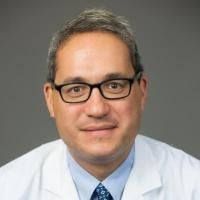The Duke Scholars in Endocrinology, Metabolism, and Cardiovascular Disease (DSEC) track was created to address common diseases relating to obesity, nutrition, and cardiovascular disease, as well as to bone/hormone/endocrine problems. These are major causes of worldwide morbidity and mortality. Given the wide range of clinical issues that fall within this track, the clinical experiences within this track will be tailored to the Scholar’s interest in either cardiology, endocrinology or metabolism.
The mission of the Duke Scholars in Endocrinology, Metabolism, and Cardiovascular Disease (DSEC) track is to:
-
Provide young, creative basic scientists with opportunities to interact with clinical colleagues and identify new challenges in obesity/nutrition, endocrinology, and cardiovascular disease.
-
Identify molecular mechanisms responsible for endocrine, bone, cardiovascular, and metabolic diseases.
-
Develop innovative scientific hypotheses that potentially lead to new diagnostic and therapeutic approaches to translate bench-to-bedside and bedside-to-bench research.
What are the key components?
The Duke Scholars in Endocrinology, Metabolism, and Cardiovascular Disease (DSEC) is designed to give PhD graduate students and postdoctoral research associates direct exposure to clinical Endocrinology, Bone, Metabolic, and Cardiovascular diseases. Each year we will select five to eight scholars through a competitive application process to complement their basic research. These clinical ventures will include:
-
Direct exposure to patients in the clinical wards and out-patient clinics. These clinical experiences are designed to enhance the understanding of how basic research can impact patient care
-
Participation in clinical case conferences to learn about patient diagnoses, clinical decision making, and therapies/interventions
-
Participation in journal clubs that focus on clinical/translational research, how clinical trials are designed, conducted, interpreted, and implemented to improve patient care.
-
Interactive seminars with guest faculty to encourage discussion of bench-to-beside translation of research; mentorship; development of successful research careers, etc.
This unique educational program aims to equip a new generation of basic scientists to partner with clinicians, speaking a common clinical language and bridging the clinical-basic science divide. These outstanding scientists will be future leaders in advancing knowledge about bone disease, endocrinology, metabolic disorders, and cardiovascular disease and translating research into solutions for real clinical problems.
Who should apply?
PhD graduate students and postdoctoral research associates working in areas of hormone regulation, bone health, nutrition, metabolism, and/or cardiovascular medicine should apply. These applicants will be found in multiple departments including, but not limited to, medicine, pediatrics, pharmacology, biochemistry, cell biology.
For more information Contact:
Pinar Gumus Balikcioglu, MD (Endocrine co-Director)
Andrew Landstrom, MD (Cardiology co-Director)
Ravi Karra, MD (Cardiology co-Director)
Richard Lee, MD, PhD (Endocrine and Bone co-Director)
Jonathan Stiber, MD (Cardiology co-Director)




